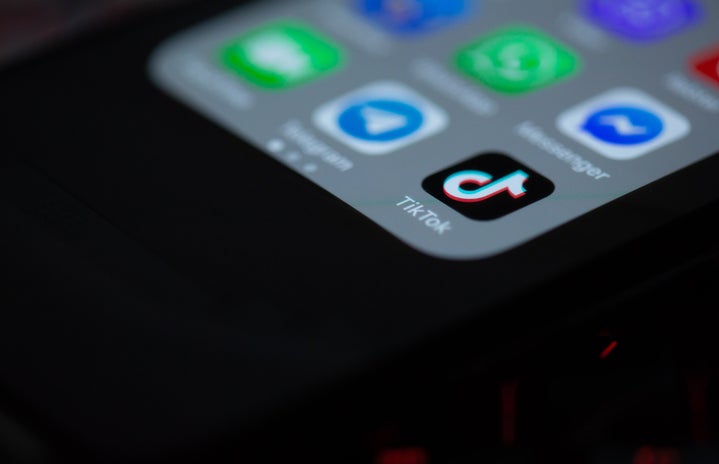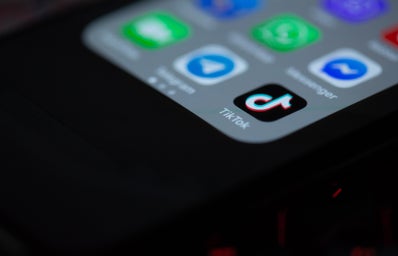Edited By: Aahana Banerjee
“DUDE HAVE YOU SEEN THIS?”, reads a text from one of your friends, alongside a screenshot of another face you find all-too-familiar — someone who you’ve seen grow up before your eyes, someone who you’ve turned to whenever you’ve felt like crying, someone who you have idiosyncratically laughed at. Someone who has been there for you, an almost-family (or at least they refer to you as such, and perhaps a million other people, but mainly you). It’s odd that people consider you virtual strangers, odd that you relate to them so much. It’s odd that they’re unaware of your existence through the screen: your favourite influencer who you’ve become attached to, over the years.
The screenshot tells you about all the horrific things that they have said. Things that you would consider completely unforgivable and utterly terrible in any instance. However, oddly enough, the first words that exit your mouth are, “What if these screenshots are fake? How do we know they really said that? I know them, they would never, ever do that!” You angrily text your friend.
Pause.
Have you ever wondered why people defend the actions of people they might not know all that well, but completely revere all the same? Or perhaps this inclination to defend their adored celebrities who they know have done things that cannot be defended in any circumstance?
Clearly, there is some psychology to it, however, it is also important to mention that understanding the psychology behind such behaviour neither excuses nor justifies it — it merely provides a window through which we can see and assess the degree of emotional investment we pour into our relationships with the media we consume and the people who subsequently create that media. These relationships are often called “parasocial relationships”, wherein one party (us, the viewers), extend a certain degree of emotional energy, interest and time in the second party (the influencers) who are completely unaware of the other’s existence.
We often tend to become quite attached to media we have been consuming for quite some time, as in the case of thinking of a favourite YouTuber as though they were an elder sister dispensing some advice, or even looking at celebrities who we think are “smol beans that need to be protected”. In many ways, we’re enmeshed within multiple parasocial relationships, all at the same time, and we’re quite often unaware of the impact that they tend to have on our individual belief systems, attitudes and emotions until people point it out to us.
That being said, what happens when we’re confronted with information that runs counter to our attachment with creators?
Many think that cognitive dissonance takes place. Dissonance theory says that we thrive on a need to be consistent — in our words, actions, and behaviour. When we think that our favourite influencer (whom we had erstwhile perceived to be good), is engaging in behaviour that is discriminatory towards a marginalised group, this creates a situation of inconsistency. In this sense, one would predict that people would immediately jump to rationalising, but that is not really the case.
Our tendency to rationalise also depends entirely on which of these two beliefs we feel more strongly about—do we feel more strongly and personally about what the influencer did, or our relationship with them? Spanjaard, in a research paper analysing how fans react to influencers they have a parasocial relationship with, after controversial incidents, mentions how fans feel more involved due to dedication and loyalty when it comes to such situations. They also go on to say that due to familiarity, one tends to be more empathetic and understanding of thought processes for influencers they are parasocially involved with, as opposed to ones they are not. This clearly shows how skewed our perceptions can get; our ideas of forgivable and unforgivable become mediated by how familiar we are with this stranger on the internet.
It is often when one feels strongly about their favourite influencers that they fall into the common trap of trying to “justify” their actions to reduce the kind of discomfort they feel with this newfound inconsistency. Twitter more often than not exemplifies harmful rationalisation, the need for “justification” becoming more and more coercive, eventually leading to the invalidation of people’s experiences. Particularly in the case of K-pop stan twitter, there have been multiple instances wherein stans have justified idols’ racist behaviour and invalidated the experiences of those who have been at the receiving end of the harm caused.
To take a step back, and think that we become such ardent defenders of people we have only seen through a screen is actually quite bizarre. While it is not unusual for us to create and forge these bonds, it is also important to look at whether or not our relationships with the people who feel so unfamiliarly familiar are healthy. Do they make us compromise on what we do and do not consider harmful? Do they make us defend situations that we shouldn’t, and otherwise wouldn’t, defend?
If the answer to both of these questions is yes, then it might be time to have a parasocial breakup with your faves.


